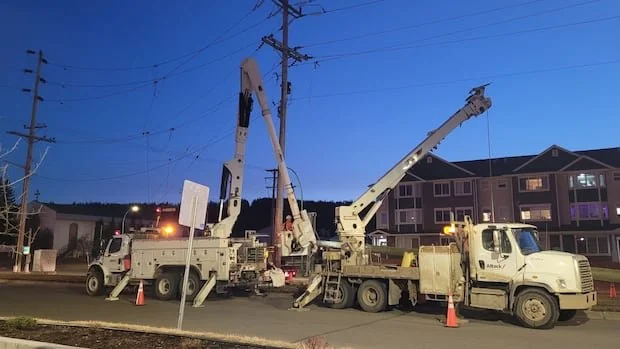A power outage, often referred to as a hydro outage in British Columbia, means a temporary loss of electricity supply to homes, businesses, or public services.
BC Hydro, as the main electricity provider in the province, manages both planned and unplanned outages. Understanding why outages occur and how they are handled is important for residents who rely on a stable power supply in their daily lives.
Contents
What Does a BC Hydro Outage Mean?
A BC Hydro outage represents an interruption of electricity that can be either scheduled in advance or caused by unexpected events. For customers, it means a temporary stop to access to lighting, heating, cooling, communication, and essential services that depend on power.
While outages can feel disruptive, they are a natural part of operating and maintaining a large electricity grid that covers urban centres, rural towns, and remote communities.
Why Do Outages Happen?
Several factors can lead to a hydro outage:
-
Planned Maintenance – BC Hydro sometimes needs to shut down parts of the grid to repair or upgrade infrastructure.
-
Weather Conditions – High winds, heavy snow, and lightning often damage power lines and poles.
-
Equipment Issues – Transformers, cables, and control systems may fail after years of operation.
-
Accidents and Hazards – External factors such as traffic collisions or natural hazards can disrupt the system.
How Do Outages Affect People?
When electricity goes out, the impact spreads across different aspects of daily life:
-
Households lose lighting, refrigeration, heating or cooling, and access to electronic devices.
-
Businesses experience interruptions to operations, reduced productivity, and potential financial loss.
-
Public Services such as hospitals, schools, and transportation systems must rely on backup power or face temporary shutdowns.
-
Community Safety may be at risk when traffic lights, street lighting, or communication networks stop working.
How Does BC Hydro Manage Outages?
BC Hydro follows a structured process to handle outages:
-
Assessment – Crews identify the source of the outage, sometimes using advanced monitoring technology.
-
Prioritization – Critical services like hospitals and emergency facilities are restored first.
-
Restoration – Power is gradually returned to affected areas, starting with the largest number of customers.
-
Prevention – Continuous maintenance, upgrades, and vegetation management reduce the likelihood of future outages.
FAQ
Q1: What is a BC Hydro outage?
It is a temporary interruption of electricity supplied by BC Hydro.
Q2: Are outages always unexpected?
No. Some are planned for maintenance, while others happen suddenly due to weather or technical issues.
Q3: How long can an outage last?
It varies. Planned outages are scheduled in advance, while unplanned ones depend on the cause and damage.
Q4: How does BC Hydro decide who gets power back first?
Critical services and areas with the most customers are restored first.
Q5: What should people do during an outage?
Stay safe, use flashlights instead of candles, and unplug sensitive electronics until power returns.
